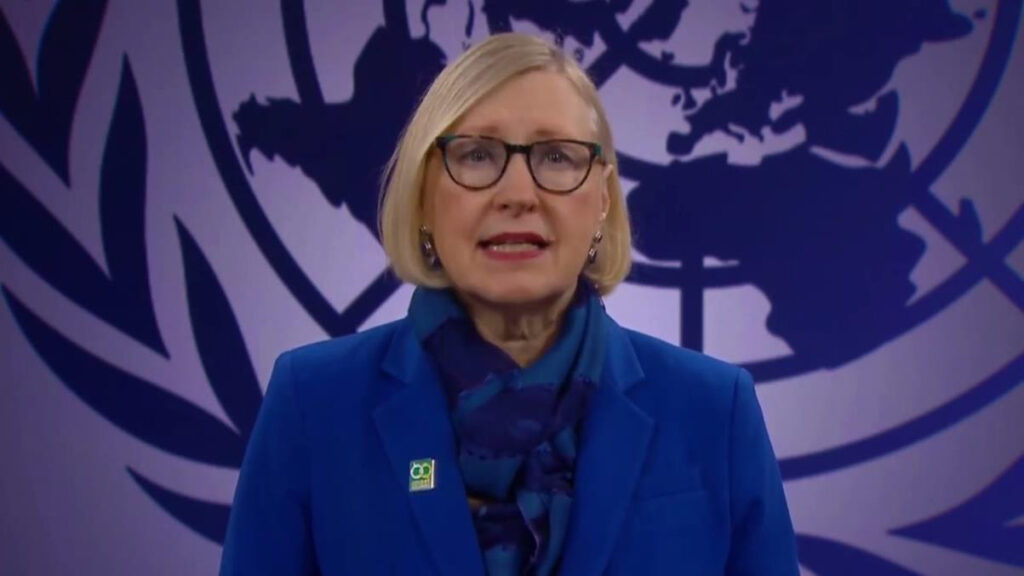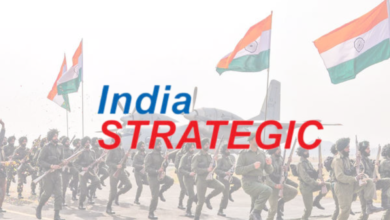Peace and Security
‘Break the cycle of violence’ through prevention and peacebuilding, Security Council told
By R Anil Kumar

-
Conflict prevention and mediation are two of “the most important tools at our disposal to reduce human suffering” United Nations Secretary-General Antonio Guterres told the Security Council
-
“When we act early, and are united, we can successfully prevent crises from escalating, saving lives and reducing suffering – fulfilling the most fundamental mandate of the United Nations”, he said
-
Violence cost the world nearly $20 trillion last year, but investment in peace and conflict prevention has been steadily decreasing, a senior UN official told the Security Council
UNITED NATIONS, August 22. Elizabeth Spehar, Assistant Secretary-General for Peacebuilding Support, addressed the Council’s high-level debate on the UN Secretary-General’s New Agenda for Peace.

Launched in July 2023, the policy brief shows that how conflict prevention and peacebuilding can help to reverse the trend towards violence while reducing the human and economic costs of war.
Break the cycle
“Prevention and peacebuilding can break the cycle of violence and lay the foundations to ensure sustainable development is possible for all,” she said.
The meeting – convened by Sierra Leone, the Council president for August – was held against the backdrop of a rise in conflict globally.
Ms. Spehar outlined how investing in three areas can advance these goals, namely promoting and supporting national voluntary peacebuilding efforts, ensuring coherence, and strengthening partnerships and resources.
Support national efforts
Addressing the first point, she said A New Agenda for Peace underscores national ownership as a guiding principle for effective prevention and peacebuilding efforts.
“It also emphasizes the need to include diverse voices, needs and participation of all segments of society, which can help make peace more sustainable,” she added.
In this regard, she cited the example of the Central African Republic, where the UN Peacebuilding Fund has supported programmes to strengthen women community mediators, thus helping to prevent conflict and sustain peace at the community level.
Comprehensive approach to prevention
The second area for investment calls for ensuring coherence and a comprehensive approach to prevention and sustaining peace.
She said A New Agenda for Peace emphasizes the need to address the root causes of violence and conflict, not only the symptoms.
“The best way to prevent societies from descending into crisis is to ensure that they are resilient through investment in inclusive and sustainable development and inclusive governance,” she said.
“This is why A New Agenda for Peace calls for accelerating the implementation of the 2030 Agenda for Sustainable Development, and for tackling inequality, marginalization and exclusion.”
Partnerships and resources
The final area for investment requires strengthening critical partnerships and ensuring the availability of more resources for prevention and peacebuilding.
Ms. Spehar noted that partnership with regional and sub-regional actors has continued to grow in both importance and scope.
She described the regular engagements between the UN Security Council and a similar partnership between the UN Peacebuilding Commission as “promising”.
She insisted, however, that more can be done in terms of concrete follow-up and tracking the results of these meetings.
Military spending on the rise
Regarding resources, she said “it is worrying to see investments in peace and conflict prevention steadily decreasing while military spending is increasing worldwide”, which represent just a fraction of total Official Development Assistance (ODA).
She told the Council that last year, the proportion for the OECD (Organisation for Economic Co-operation and Development) countries was 10 per cent – a 15-year record low.
“At the same time, only last year, research showed that violence cost the world nearly $20 trillion – that is 13.5 per cent of global GDP.”
She stressed the need to further explore the partnership between the UN and international financial institutions (IFI), ranging from the World Bank to regional development banks, to ensure that development investments contribute to lasting peace.





